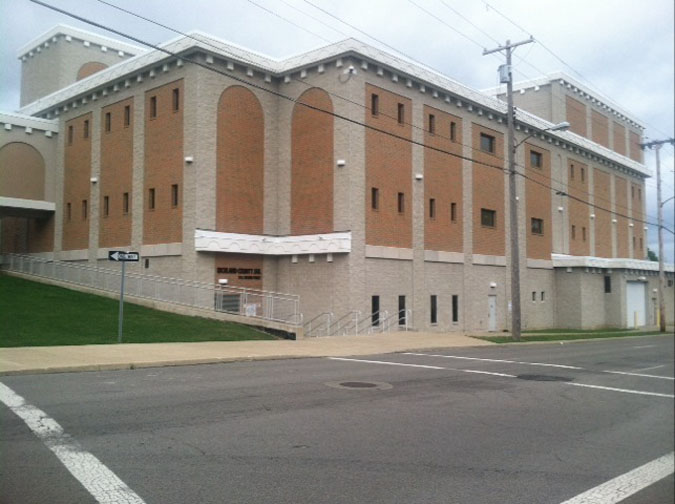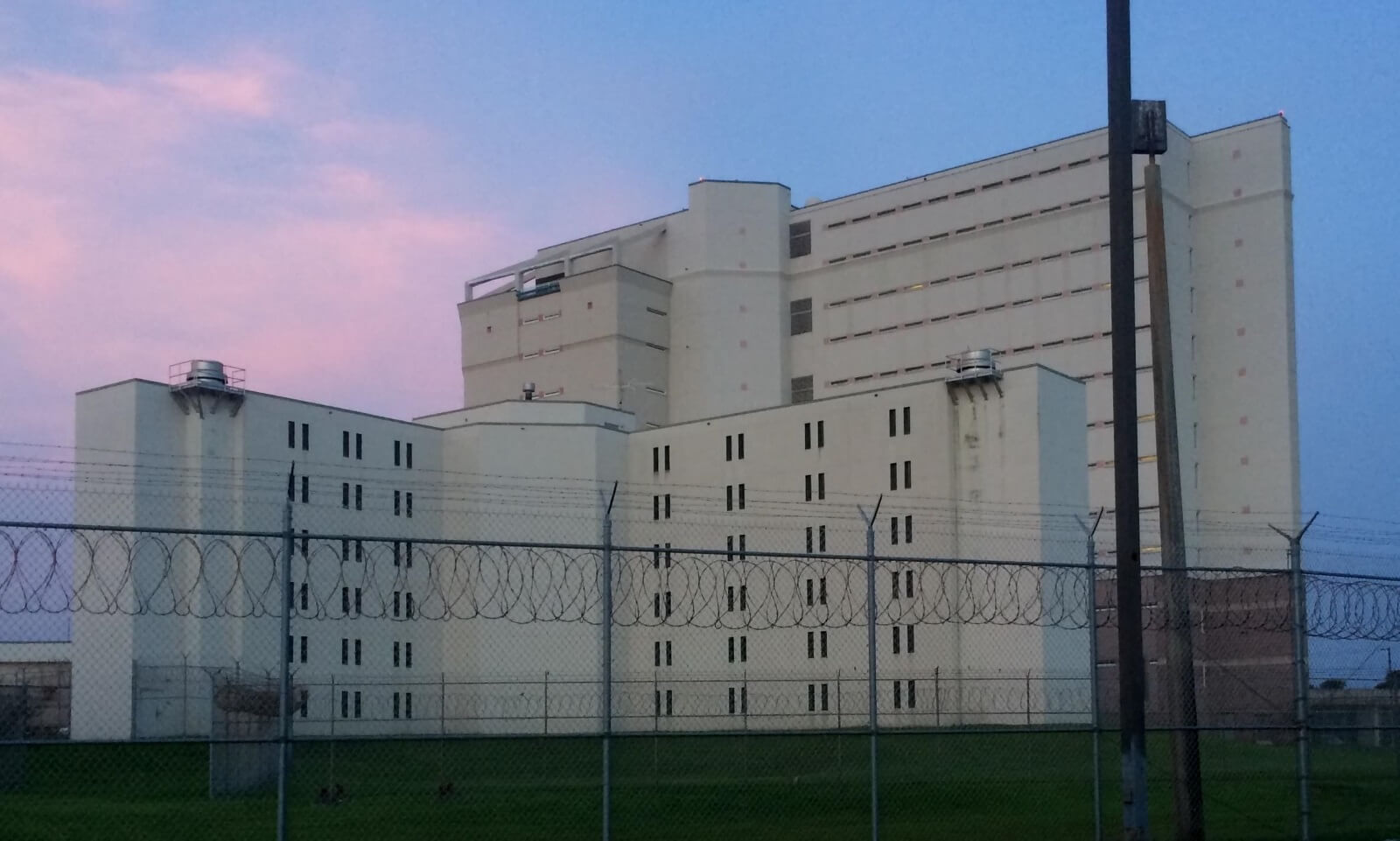When you think about Richland Parish Jail, there’s more to the story than just bars and walls. This isn’t just a place where people are held—it’s an institution with a history, a purpose, and a role in the justice system that affects countless lives. Whether you’re here because you’re researching for legal purposes, trying to understand the jail system better, or looking for information on someone specific, you’ve come to the right place.
Richland Parish Jail is one of those places that often gets overlooked in casual conversation. But let’s be real—it plays a huge part in how the justice system operates in this area. From intake procedures to inmate rights, understanding what goes on inside these walls can make all the difference, especially if you or someone you know is involved.
What we’re aiming to do here is break down everything you need to know about Richland Parish Jail in a way that’s easy to digest. We’ll dive into the nitty-gritty details, from how inmates are processed to the resources available for family members and loved ones. Let’s get started, shall we?
Read also:Miguel Ferrer The Iconic Actors Journey Through Hollywood
Table of Contents
Overview of Richland Parish Jail
Location and Contact Information
A Brief History of Richland Parish Jail
Rights and Privileges of Inmates
Visitation Policies and Guidelines
Read also:Uncovering The Best Storage Solutions In Decatur Tx
Community Resources for Families
Overview of Richland Parish Jail
Richland Parish Jail is more than just a detention facility. It serves as a cornerstone of law enforcement and public safety in the parish. The jail houses individuals who are awaiting trial, serving short sentences, or awaiting transfer to other facilities. It’s not just about locking people up; it’s also about rehabilitation, accountability, and ensuring that justice is served.
One of the key things to understand about Richland Parish Jail is its role in the broader justice system. The facility works closely with local law enforcement agencies, courts, and community organizations to ensure that inmates are treated fairly and that their rights are respected. It’s not all doom and gloom—there are programs in place to help inmates turn their lives around, and we’ll dive deeper into that later.
But let’s be honest—jails aren’t exactly a walk in the park. They’re designed to be secure, and while they aim to rehabilitate, they also serve as a deterrent for criminal behavior. Understanding the inner workings of Richland Parish Jail can help you navigate the system if you ever find yourself needing to interact with it.
Location and Contact Information
Before we dive deeper, let’s get the basics out of the way. Richland Parish Jail is located in Rayville, Louisiana. If you’re looking to visit or need to contact the facility, here’s what you need to know:
- Address: 720 ML King Dr, Rayville, LA 71269
- Phone: (318) 728-1111
- Website: Check the official Richland Parish Sheriff’s Office website for updates and announcements.
Keep in mind that the jail operates on specific schedules, so if you’re planning a visit or need to contact them, it’s always a good idea to call ahead or check their website for the latest information.
A Brief History of Richland Parish Jail
Richland Parish Jail has been around for quite some time, and its history is tied to the development of the parish itself. Originally established to address the growing need for a secure detention facility, the jail has undergone several renovations and expansions over the years to accommodate the changing demands of the justice system.
In the early days, the facility was much smaller and less equipped than it is today. As crime rates fluctuated and the population grew, so did the need for a more robust detention system. The jail’s evolution reflects the broader trends in law enforcement and corrections in the United States.
Today, Richland Parish Jail stands as a testament to the commitment of local authorities to maintain public safety while upholding the rights of those detained. It’s not just a building—it’s a symbol of justice, accountability, and the ongoing effort to balance punishment with rehabilitation.
Inmate Intake Procedures
When someone is booked into Richland Parish Jail, the process is both thorough and methodical. The intake procedure ensures that all necessary information is gathered, and the individual is properly assessed for security and medical needs.
- Booking: This involves collecting basic information such as name, date of birth, and charges. Fingerprints and mugshots are also taken during this stage.
- Medical Screening: Inmates undergo a medical evaluation to identify any health issues that may require attention. This is crucial for ensuring their well-being while in custody.
- Classification: Based on the severity of the charges and the individual’s behavior, inmates are classified and assigned to appropriate housing units.
It’s worth noting that the intake process can vary depending on the circumstances of the arrest and the individual’s criminal history. The goal is to ensure that each inmate is treated fairly and that the facility remains secure for everyone involved.
Rights and Privileges of Inmates
Contrary to popular belief, inmates at Richland Parish Jail still have rights, even if they’re behind bars. These rights are designed to protect their dignity and ensure that they are treated with respect and fairness.
Some of the key rights include:
- Right to Legal Representation: Inmates have the right to consult with their attorneys and receive fair treatment during legal proceedings.
- Right to Medical Care: Access to medical treatment is a fundamental right, and the jail is obligated to provide necessary care.
- Right to Communication: Inmates can communicate with family members and legal representatives, subject to certain restrictions.
While there are rules and regulations governing inmate behavior, the facility aims to maintain a balance between security and respect for individual rights. Understanding these rights can empower both inmates and their loved ones to navigate the system more effectively.
Visitation Policies and Guidelines
Visitation is an important aspect of life at Richland Parish Jail. It allows inmates to maintain connections with their families and loved ones, which can be crucial for their mental well-being and rehabilitation.
Here’s what you need to know about visitation:
- Schedule: Visitation hours are typically limited to specific days and times. It’s essential to check the schedule beforehand to avoid disappointment.
- Rules: Visitors must adhere to a strict dress code and are subject to security checks. Bringing prohibited items can result in denial of entry.
- Preparation: Make sure to bring valid identification and any necessary documentation to ensure a smooth visitation process.
Visitation policies can vary, so it’s always a good idea to confirm the latest guidelines with the jail administration. Staying informed can make the process much easier for everyone involved.
Communication with Inmates
Staying in touch with someone in Richland Parish Jail doesn’t have to be a daunting task. There are several ways to communicate with inmates, including phone calls, letters, and email.
Here’s a breakdown of the options:
- Phone Calls: Inmates can make collect calls from the jail. Family members can set up accounts to receive these calls, but there may be associated fees.
- Letters: Writing letters is a great way to stay connected. Make sure to follow the jail’s guidelines for sending mail, including proper addressing and content restrictions.
- Email: Some facilities offer email services, allowing inmates to communicate digitally with their loved ones.
Communication is vital for maintaining relationships and supporting inmates during their time in custody. By understanding the available options, you can find the best way to stay in touch.
Rehabilitation Programs
One of the most important aspects of Richland Parish Jail is its focus on rehabilitation. The facility offers a variety of programs aimed at helping inmates turn their lives around and reintegrate into society.
Some of the key programs include:
- Education: Classes in literacy, GED preparation, and vocational training are available to help inmates acquire new skills.
- Counseling: Inmates have access to counseling services to address mental health issues and substance abuse problems.
- Work Programs: Participation in work programs can provide valuable experience and a sense of purpose while in custody.
These programs are designed to empower inmates and give them the tools they need to succeed once they are released. Supporting rehabilitation efforts can have a positive impact on both the individual and the community as a whole.
Release Procedures
When an inmate is released from Richland Parish Jail, there are specific procedures in place to ensure a smooth transition back into society. This process involves several steps, including:
- Pre-Release Planning: Inmates work with case managers to develop a plan for their release, which may include housing, employment, and support services.
- Document Processing: Necessary paperwork is completed to finalize the release, including any conditions of parole or probation.
- Support Services: Resources are available to help inmates adjust to life outside the jail, including counseling and job placement assistance.
Reintegration into society can be challenging, but with the right support and resources, many former inmates are able to lead productive and fulfilling lives after their release.
Community Resources for Families
Families of inmates often need support as well, and there are several community resources available to help them navigate this difficult time.
Some of these resources include:
- Counseling Services: Support groups and counseling services can provide emotional and psychological support for family members.
- Legal Assistance: Access to legal advice and representation can be crucial for understanding the legal process and advocating for loved ones.
- Educational Programs: Workshops and seminars on topics like coping strategies and communication can help families stay connected and informed.
By tapping into these resources, families can find the support they need to stay strong and resilient during this challenging time.
Kesimpulan
Richland Parish Jail is more than just a detention facility—it’s a vital part of the justice system that plays a significant role in maintaining public safety and promoting rehabilitation. From intake procedures to release protocols, understanding how the system works can empower both inmates and their loved ones to navigate it more effectively.
We’ve covered a lot of ground in this guide, from the history of the jail to the rights and privileges of inmates, and the various programs and resources available to support rehabilitation and reintegration. Remember, staying informed is key to making the most of the resources and opportunities available.
So, what’s next? If you have questions or need further clarification, don’t hesitate to reach out. Leave a comment, share this article with others who might find it helpful, or explore more content on our site. Together, we can work towards a better understanding of the justice system and its impact on our communities.


